Quartz countertops have become increasingly popular due to their durability, aesthetic appeal, and low maintenance requirements. When considering quartz countertops for your kitchen or bathroom, one important factor to take into account is the standard thickness. Typically, quartz countertops come in three standard thicknesses: 1 cm (3/8 inch), 2 cm (3/4 inch), and 3 cm (1 1/4 inch). Each thickness has its unique advantages and is suitable for different applications, depending on the structural and design requirements of your space.
The 1 cm thickness, also known as 3/8 inch, is the thinnest option available for quartz countertops. This thickness is generally used for vertical applications such as backsplashes and wall cladding. It is not recommended for horizontal surfaces like kitchen countertops due to its fragility and susceptibility to damage under heavy loads. However, its lightweight nature makes it easier to handle and install in applications where support is not a primary concern. This thickness can also be used in combination with a plywood substrate to provide additional strength and stability for horizontal applications.
The 2 cm thickness, or 3/4 inch, is more versatile and is often used in both residential and commercial settings. It offers a good balance between strength and weight, making it suitable for kitchen and bathroom countertops. This thickness provides enough structural integrity to support daily use while still being relatively easy to install. In some cases, a plywood substrate is used underneath the countertop to enhance its durability and ensure it can support heavier loads. The 2 cm thickness is also more affordable than the thicker 3 cm option, making it a popular choice for budget-conscious homeowners.
The 3 cm thickness, or 1 1/4 inch, is the most robust and durable option for quartz countertops. It is ideal for high-traffic areas and surfaces that are subject to significant wear and tear, such as kitchen islands and workstations. The increased thickness provides greater strength and resistance to chipping and cracking, ensuring the countertop can withstand heavy use over time. Additionally, the 3 cm thickness eliminates the need for a plywood substrate, simplifying the installation process and providing a cleaner, more streamlined look. However, this option is generally more expensive due to the increased material cost and weight.

When selecting the thickness of your quartz countertop, it’s important to consider the overall design and functionality of your space. For example, if you prefer a sleek, modern look with minimal visible seams, the 2 cm thickness may be the best choice. On the other hand, if durability and longevity are your primary concerns, the 3 cm thickness is likely the better option. It’s also important to take into account the cabinetry and support structure beneath the countertop, as this will impact the installation process and long-term stability of the surface.
Another factor to consider is the edge profile of your quartz countertop, which can be customized to enhance the aesthetic appeal and functionality of the surface. Thicker countertops, such as those with a 3 cm thickness, allow for more intricate edge profiles, including ogee, bevel, and bullnose designs. These edge profiles can add a touch of elegance and sophistication to your kitchen or bathroom, creating a focal point that complements the overall design of the space. In contrast, thinner countertops with a 2 cm thickness may be limited to simpler edge profiles, such as straight or eased edges.
In terms of cost, the thickness of your quartz countertop will have a significant impact on the overall price. Thicker countertops generally require more material, which increases the cost of the slab. Additionally, the installation process for thicker countertops can be more labor-intensive, further driving up the price. It’s important to balance your budget with your design preferences and functional needs to ensure you select the best thickness for your space.
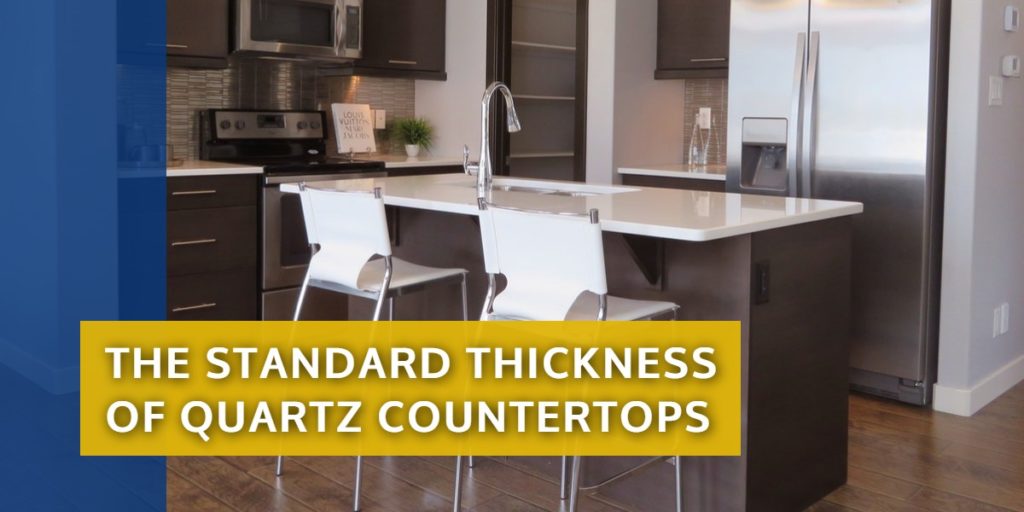
Maintenance and care are also important considerations when choosing the thickness of your quartz countertop. Thicker countertops, such as the 3 cm option, tend to be more resistant to damage and require less frequent maintenance. They are also less likely to develop cracks or chips over time, making them a more durable and long-lasting choice. Thinner countertops, on the other hand, may require more careful handling and maintenance to prevent damage, particularly in high-traffic areas.
One of the advantages of quartz countertops, regardless of thickness, is their non-porous nature, which makes them resistant to stains and bacterial growth. This feature is particularly beneficial in kitchen environments where hygiene is a top priority. Regular cleaning with mild soap and water is usually sufficient to keep quartz countertops looking their best. Additionally, unlike natural stone countertops, quartz does not require periodic sealing, which reduces the overall maintenance burden.
Environmental considerations are also becoming increasingly important for homeowners when selecting countertop materials. Quartz is a more sustainable option compared to natural stone, as it is engineered using a combination of natural quartz and resins. The production process for quartz countertops generates less waste and requires less energy than the extraction and processing of natural stone slabs. Additionally, many quartz manufacturers now offer products with recycled content, further reducing the environmental impact.
When it comes to installation, the thickness of your quartz countertop can affect the complexity and duration of the process. Thicker countertops, such as the 3 cm option, are heavier and require more effort to transport and install. This can increase the cost and time needed for installation, particularly in larger spaces or areas with difficult access. Thinner countertops, such as the 2 cm option, are lighter and easier to handle, making the installation process quicker and less labor-intensive.

In commercial settings, the thickness of quartz countertops can also impact their performance and longevity. High-traffic areas, such as restaurant kitchens and hotel bathrooms, benefit from the durability and strength of 3 cm thick countertops. These surfaces can withstand heavy use and frequent cleaning without showing signs of wear and tear. In contrast, 2 cm thick countertops may be more suitable for areas with less intensive use, where the balance between cost and durability is a primary consideration.
Another practical consideration is the resale value of your home. High-quality quartz countertops with a thicker profile can enhance the overall value of your property, making it more attractive to potential buyers. The durability and low maintenance requirements of thicker countertops are appealing features that can contribute to a higher selling price. Additionally, the aesthetic appeal of a well-designed and installed quartz countertop can create a positive impression on buyers, further increasing the perceived value of your home.
Finally, personal preference plays a significant role in selecting the thickness of your quartz countertop. Some homeowners prefer the substantial, solid feel of a 3 cm thick countertop, while others may appreciate the sleeker, more streamlined look of a 2 cm thick surface. Ultimately, the best choice depends on your individual needs, budget, and design vision. Consulting with a professional installer or designer can help you make an informed decision that balances all of these factors.

Common Mistakes to Avoid:
Overlooking Support Structure: Failing to ensure adequate support for your quartz countertop, especially with thinner options like 2 cm, can lead to sagging or cracking over time. Always check that your cabinetry and supports are sufficient to handle the weight and thickness of your chosen countertop.
Ignoring Edge Profile Compatibility: Selecting an edge profile that is too complex for the thickness of your countertop can result in a less durable edge. For thinner countertops, simpler edge profiles are recommended to maintain structural integrity.
Underestimating Installation Requirements: The installation process for thicker countertops can be more complex and labor-intensive. Ensure you account for these factors in your budget and timeline to avoid unexpected delays and costs.
Neglecting Maintenance Needs: While quartz is low maintenance, it’s important to follow recommended care guidelines. Using abrasive cleaners or failing to clean up spills promptly can damage the surface over time.
Not Considering Long-Term Needs: Choosing a thickness based solely on cost can lead to dissatisfaction if the countertop doesn’t meet your long-term needs for durability and aesthetic appeal. It’s important to balance initial costs with the benefits of a more robust option.
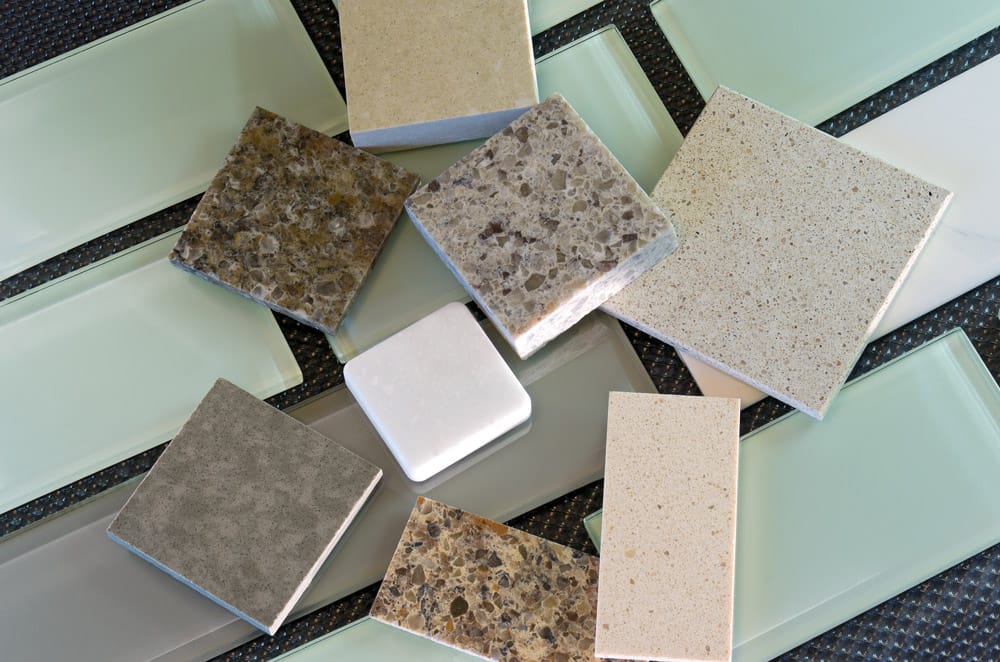
What is the most common thickness for quartz countertops?
The most common thickness for quartz countertops is 2 cm (3/4 inch). This thickness offers a good balance between cost, durability, and ease of installation, making it suitable for a wide range of residential and commercial applications. It is often used in kitchen and bathroom countertops where both strength and aesthetic appeal are important.
Can a 2 cm quartz countertop be used without additional support?
While a 2 cm quartz countertop can be used in many applications, it often requires additional support, such as a plywood substrate, especially for larger spans or areas that will bear heavy loads. This additional support helps to prevent sagging and enhances the overall durability of the countertop.
Is a thicker quartz countertop always better?
A thicker quartz countertop, such as a 3 cm (1 1/4 inch) option, offers greater durability and strength, making it ideal for high-traffic areas and heavy-use surfaces. However, it is also more expensive and heavier, which can complicate installation. The best choice depends on your specific needs, budget, and the design of your space.
What are the benefits of a 1 cm quartz countertop?
A 1 cm (3/8 inch) quartz countertop is typically used for vertical applications like backsplashes and wall cladding due to its lightweight nature. It is not recommended for horizontal surfaces due to its fragility. However, it can be a cost-effective and visually appealing option for decorative purposes.
How does countertop thickness affect the overall cost?
Thicker countertops generally require more material and can be more expensive to purchase and install. The increased weight also means higher transportation and labor costs. It’s important to balance the initial expense with the long-term benefits of a thicker, more durable countertop that may offer better performance and longevity.

Countertop Thickness: Why its Important

How to Choose the Correct Countertop Thickness for Your Application
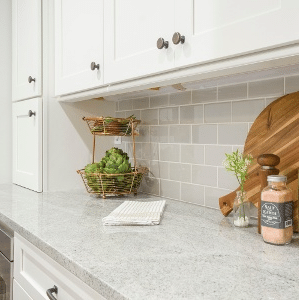
Things You Should Know About Installing Quartz Kitchen Countertops
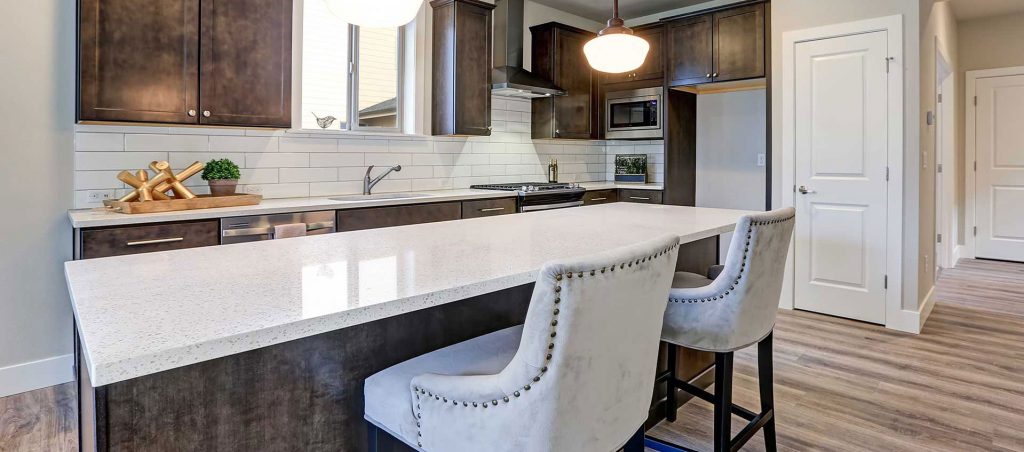
What Is The Most Recommended Thickness Of A Quartz Countertop
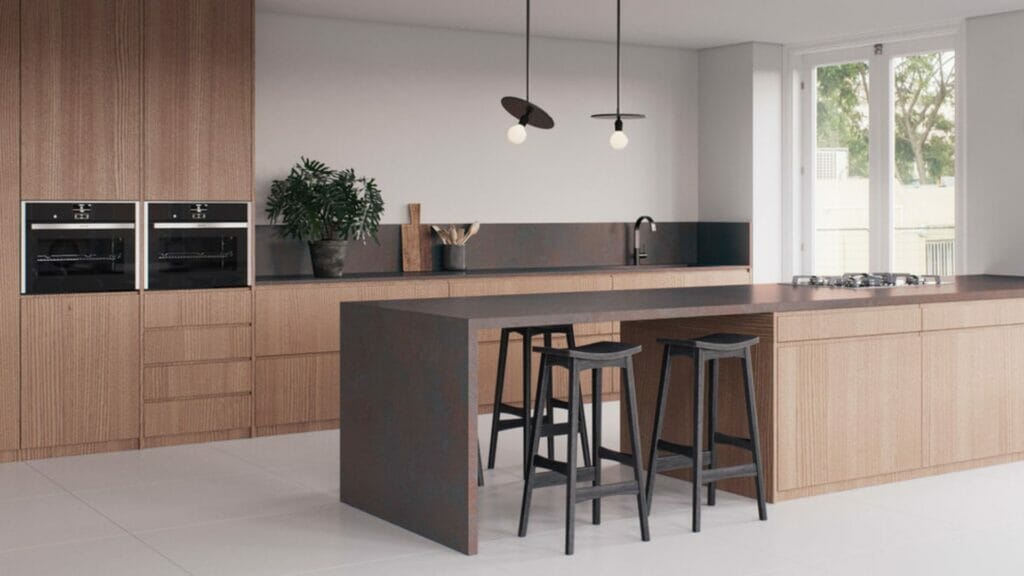
Related articles: